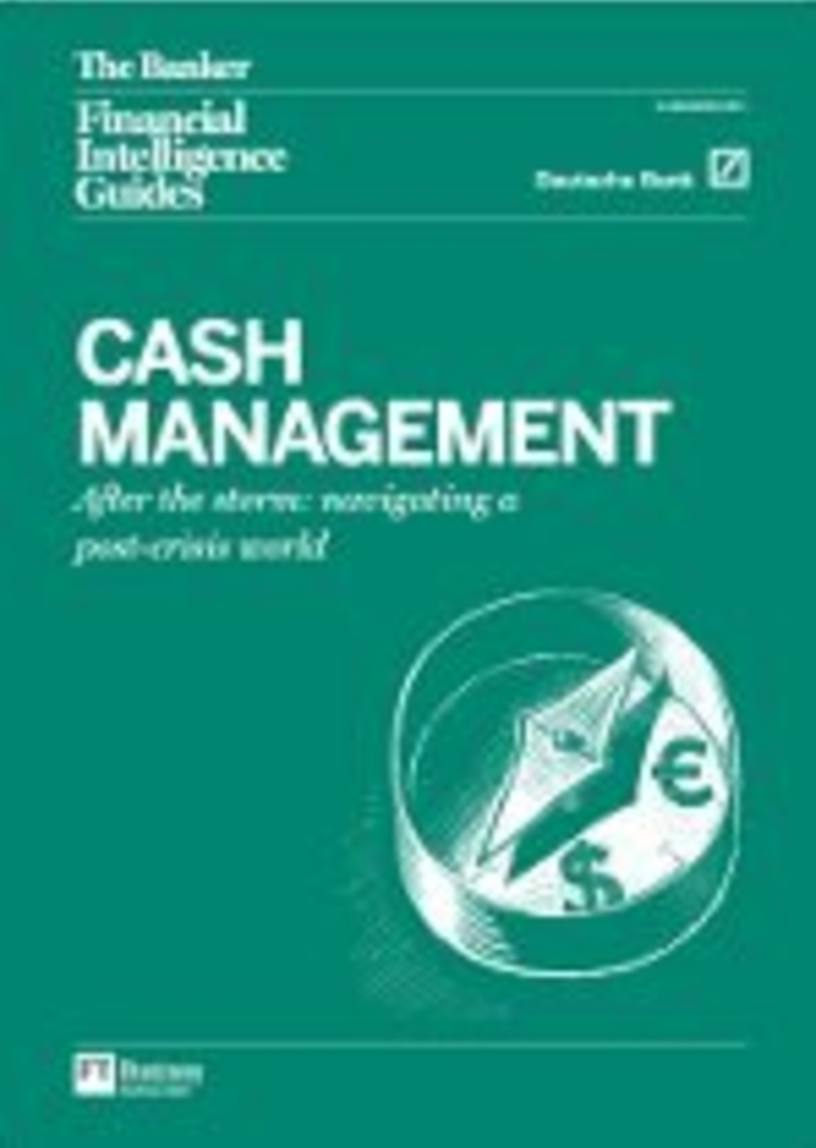Cash management has changed. Not only as a result of the economic downturn, but also as a result of myriad other reasons: the increasingly global nature of business, great leaps ahead in technology and an ever-evolving regulatory environment. To be an effective transaction banker in 2010 requires an entirely different set of qualities than just five years ago. It might not exactly be a job that will win awards for its glamour and mystique, but it is a job that has become increasingly critical to all banks and businesses in the new, post-Lehman world.
The financial services industry has entered an age of supposed 'conventional banking'. Traditional fee generative, stable businesses within banking that produce stable revenue flows are the order of the day.
Indeed, a recent report by consultant Accenture concluded that it was now a "strategic imperative" for banks to seek out and seize growth opportunities in low-capital-intensive, stable businesses offering reliable and predictable fee-based revenue streams that last throughout economic cycles. Put in more simple terms: transaction banking.
Gone are the hugely profitable prop desks and lucrative capital markets teams with their star traders and big bonuses. The new age of banking austerity, for the moment, smiles upon Steady Eddy rather than Flash Harry. This will undoubtedly be reflected in new regulation that is being drawn up by governments across the world, and is certainly already being reflected within the industry itself.
The Banker's Top 1000 World Banks rankings shows an industry that has become focused more on shoring up internal liquidity and making sure the books are balanced, than on grabbing assets. Capital asset ratios (CARs), a measure of a bank's soundness and financial health, have shot up across the industry. A higher CAR equals a more stable bank. With this in mind, most of the world's biggest banks have been racing to boost their CARs. The top three developed world banks by Tier 1 ratio, Bank of America, JPMorgan and Citigroup, have all increased their CAR ratios by 3% to 4% since 2007.
This more conservative focus of banks' boards across the developed world has helped the standing of those parts of the business, such as cash management, that have been able to weather the financial crisis with their reputations intact. It might be a business that requires large costs and generates only slim margins, but those margins are steady and can be relied upon. Not only this, but their clients need these services like never before. As corporations across the world suffered as a result of one of the biggest drop-offs in trade in modern memory, so they were forced to turn to their bankers in order to squeeze out every last drop of liquidity within their businesses.
It is ironic that just as bankers were becoming regarded by most as a collective global menace to society, so their services were needed like never before. The role of the corporate treasurer has become integral to the survival of companies across the globe, and senior management recognises this. Despite the all-encompassing nature of the economic downturn, as the storm clouds just begin to dissipate, big opportunities are emerging for those that are well prepared.
Secret of success
So what is the secret of cash management success in this brave new world? What does the transaction banker of 2010 need to do to ensure success and what qualities does he or she need to have in abundance? In terms of drawing up an effective curriculum vitae (CV) for the transaction banker of today, arguably the most important quality would be good communication skills. In an increasingly competitive industry, clients are demanding more and more for less and less. Against a background of deep scepticism about the wider banking community as a whole, exacerbated by fears over the creditworthiness of their banks, transaction bankers must be able to reassure clients on the one hand and build lasting relationships on the other.
Those good communications skills will also come in handy to cope with the increasingly international reach of all businesses, both large and small. A qualification in Mandarin, Russian, Indian or Portuguese might also be a distinct advantage, as the international trade of the future will be largely driven by the BRIC economies. Asia in particular will be a battle ground. Accenture's recent cash management report estimates that trade is likely to increase by 30% to 50% through to 2014. Asia is likely to account for 80% of that growth.
A certain amount of thick skin is also imperative in such difficult times and will be essential in order to handle the cutthroat competition between the major transaction banks. The industry is consolidating like never before. Size will be critical to future growth and those banks that do not achieve the requisite scale and reach will struggle to compete. Increasingly, smaller and more medium-sized players will be forced to abandon their costly transaction banking divisions in order to focus upon their core, client-facing business. They will instead turn to the larger, more established banks to manage their cash management needs.
A willingness to bite the bullet and source skills from larger competitors will be essential. As Marcus Sehr, head of wholesale solutions and business development, cash management, financial institutions at Deutsche Bank, highlights: "Many local and regional banks know their clients very well and maintain close relations with them, yet they often do not have the resources to invest sufficiently in transaction banking products and services or the scale to justify investment," he says. "They therefore need to partner with larger, specialist institutions in order to maintain or build a market-leading product offering."
Regulatory burden
Patience will also be a key requirement for any suitable candidate hoping to be a success in cash management in the future. Attempts to harmonise the industry through regulation are born out of good intentions but have proved costly, time consuming and frustratingly hard to implement. A case in point is the Single Euro Payments Area (SEPA). It is a story of delays, indecision and stasis. With an original deadline for compliance in January 2008, very few banks have taken up the SEPA Credit Transfer and none on the kind of scale to make it effective. The SEPA Direct Debit has been delayed and the roll out of the Payment Services Directive across Europe's banks has proved to be painfully slow.
As yet, no deadline has been set for compliance with SEPA, and it seems highly unlikely one will be set any time soon. As Frances Maguire finds in her article in this guide, successful implementation of SEPA across Europe is facing yet further difficulties. With an original estimate of 2010 for when a critical mass of payments might have migrated to SEPA schemes, so that domestic systems could be switched off, this has been pushed back to 2012. The European Commission has since issued a 'discussion paper' and begun a consultation process. It would be wise for transaction bankers not to hold their breath for any imminent solution or end date for the SEPA saga.
Change breeds opportunity
For those transactions bankers that gaze into their crystal balls, they will no doubt find that the future of their industry is one of great change and difficulty, but also one of great opportunity. Those bankers with the requisite reserves of patience, thick skin and creativity will no doubt prosper. Armed with good communications skills, a suitably global view of the business, a passion for technology and the requisite scale, banks cannot fail. However, success will not come easy, according to Mr Sehr: "Expectations that transaction banking should overdeliver this year in terms of revenue generation and profit contribution have been tempered with the realisation that clients are now demanding more at lower prices, regulatory pressures remain intense and that substantive revenue growth will need to be prefigured by considerable investments in platforms, expertise and product development." CVs are welcomed.







